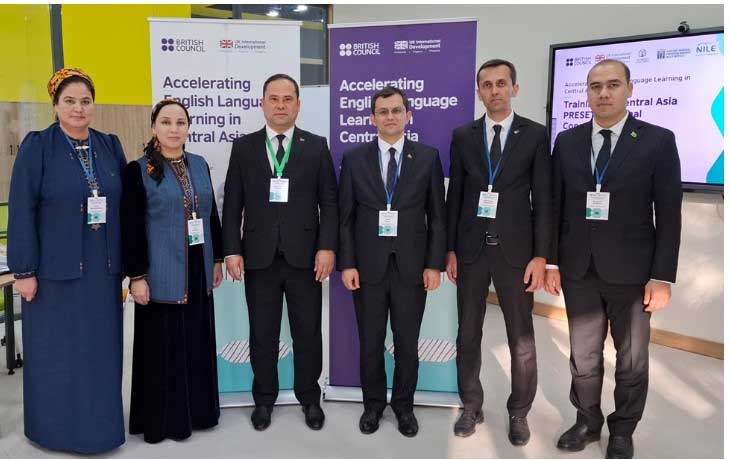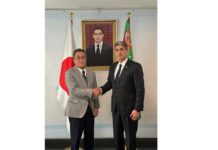From October 20 to 23, an international seminar entitled “Accelerating English Language Learning in Central Asia” was held in Tashkent, the capital of Uzbekistan, organized by the British Council of Great Britain. The training event, hosted at the Abdulla Avloniy National Institute of Pedagogical Mastery, brought together English language specialists and university educators from across Central Asia. Representatives of leading universities and educational institutions attended the seminar from Kazakhstan, Kyrgyzstan, Tajikistan, Turkmenistan, and Uzbekistan, as well as international experts in the field of English language teaching. The main objective of the seminar was to train national consultants from each Central Asian country who would be able to support their educational institutions in implementing recommendations developed during the process of curriculum design and improvement.
A senior researcher of ELT represented Turkmenistan from the National Institute of Education of Turkmenistan, along with experienced English language teachers from the Magtymguly Turkmen State University and the Dovletmammet Azadi Turkmen National Institute of World Languages.
Participants of the international educational seminar discussed important issues concerning current requirements for the curricula of English language teachers being trained in higher educational institutions.
Special attention was given to the following issues:
The profile of a newly qualified English teacher (language proficiency and teaching methodology);
Defining programme exit requirements and learning outcomes;
Developing the PRESETT curriculum: analyzing sample curricula, identifying core and optional modules, and considering contextual factors and specific national needs;
Characteristics of an effective PRESETT curriculum;
Analysis of a sample PRESETT curriculum module;
The seminar made a significant contribution to the development of English teacher education systems across Central Asia. The knowledge approaches, and methodological tools gained by the participants will help improve the quality of English language teaching, strengthen the professional potential of educators, and promote collaboration among the countries of the region. In the long term, the outcomes of this initiative will serve as a foundation for creating a shared methodological framework aimed at enhancing the effectiveness of English language education and further strengthening international cooperation in the field of education.









